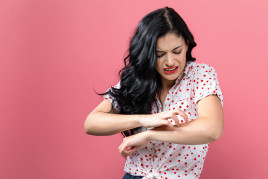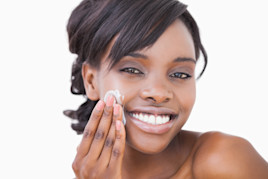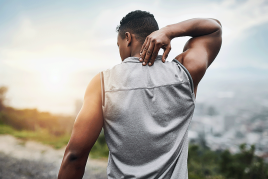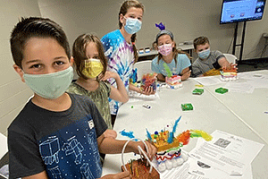How to prevent athlete's foot
How to prevent athlete's foot
Athlete's foot is a common fungal infection that most people get from walking barefoot in moist public places, like a swimming pool deck or locker room.
To reduce the chance of catching athlete's foot, board-certified dermatologists recommend that you take the following precautions.
Despite the name, athlete’s foot can happen to anyone. It can result in flaky skin, cracking, and itchiness on the soles of the foot and between the toes.
To reduce the chance of catching athlete’s foot, dermatologists recommend that you take the following precautions:
Wear shower shoes, flip-flops, or sandals when walking around pools, gyms, shower or locker areas, and hotel rooms. The fungus that causes athlete’s foot may be on the floor. Even when taking a shower in a gym, it is important to wear shower shoes or flip flops.
Even if you have not gone barefoot in public areas, keep your feet dry. This fungus thrives in warm, moist areas such as the one created inside hot, sweaty shoes. Wearing sandals or flip-flops helps when it’s hot outside. Shoes that are made from synthetic materials like plastic and rubber are more likely to cause sweating.
Wash your feet every day with soap and completely dry them after washing.
Wear socks made of natural fabrics or fabrics that dry quickly or wick moisture away from the skin. Also, be sure to change your socks every day and more often when your socks get wet.
Alternate the shoes you wear each day, if possible, to ensure shoes are dry when they are put on.
If you live with someone who has athlete’s foot, don’t share towels, linens, or shoes. Wear shoes in areas where infected feet have been.
If your athlete’s foot is not improving or is worsening, you should make an appointment to see a board-certified dermatologist.
 Atopic dermatitis: More FDA-approved treatments
Atopic dermatitis: More FDA-approved treatments
 Biosimilars: 14 FAQs
Biosimilars: 14 FAQs
 How to trim your nails
How to trim your nails
 Relieve uncontrollably itchy skin
Relieve uncontrollably itchy skin
 Fade dark spots
Fade dark spots
 Untreatable razor bumps or acne?
Untreatable razor bumps or acne?
 Tattoo removal
Tattoo removal
 Scar treatment
Scar treatment
 Free materials to help raise skin cancer awareness
Free materials to help raise skin cancer awareness
 Dermatologist-approved lesson plans, activities you can use
Dermatologist-approved lesson plans, activities you can use
 Find a Dermatologist
Find a Dermatologist
 What is a dermatologist?
What is a dermatologist?